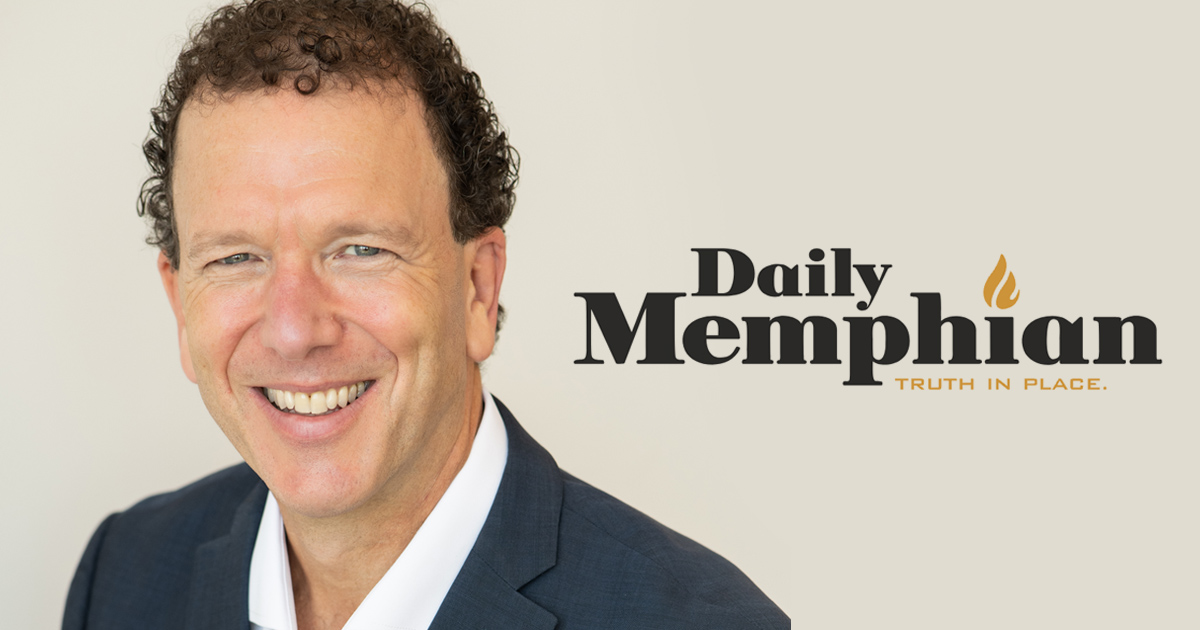Greenstein: It’s about time
By: Rabbi Micah Greenstein | September 22, 2024
Enter a search request and press enter. Press Esc or the X to close.

By Micah Greenstein | Special to The Daily Memphian
A wise rabbinic teacher of mine once noted the many different things we can do with time. We can use time, kill time, waste time, sanctify time, mark time, pass time, make time, record time and keep time. However, one thing we cannot do is hold time back, and we certainly cannot turn it back.
One week from Wednesday evening, Jews around the world will mark time by celebrating the biblical lunar new year known as Rosh Hashanah. Surprisingly, the Jewish new year is not related to anything particularly Jewish. Rosh Hashanah celebrates the birthday of the world for all humanity.
Further, the traditional new year’s greeting, “Shanah Tovah,” does not mean “Happy New Year” since not every day or year is necessarily a happy one. “Shanah Tovah” means, “Good New Year,” that is, “May it be a year filled with goodness and moments of sweetness.” Hence the tradition of dipping apples in honey on Rosh Hashanah.
This Jewish season is when we talk about the passage of time and how to use our time more wisely by not putting off until tomorrow what we should be doing today. When we are younger, time passes too slowly. We want life to move on. But not when we are older. Then, time passes way too quickly! We may want time to slow down, but time doesn’t care. Time just flies.
Ancient Jewish commentary known as the Midrash compares time to a shadow. Not the shadow of a house, person or tree, but the shadow of a bird in flight. The Midrash teaches that time flies so quickly, it eludes our grasp like the shadow of a soaring bird.
Perhaps the key test of time is the meaning and hope we attach to it, since hope is always possible, no matter what we experience. We may despair over sickness, failure or heartache, for instance, but we still hope for better days and better outcomes, don’t we?
When King Solomon built the Temple in Jerusalem, separate gates were constructed for two distinct groups of people entering and leaving, depending on their life circumstance. Folks giving thanks for happy times entered Sha’ar Hasimcha, “The Gate of Rejoicing,” while individuals experiencing sorrow went in through Sha’ar Ha’evel, “The Gate of Mourning.” The two arrival gates were positioned so that people in both lines passed by each other. In this way, people experiencing pain could be comforted by the heartfelt condolences of passersby and be reminded that while tears may linger for the night, joy comes with the dawn.
Life imposes enough stress on human beings without doing anything, so why add to life’s inevitable sorrows by worrying?
In “Fire in the Soul,” author Joan Borysenko confesses, “My mother was a first-class worrier. She worried about everything, regardless of whether or not any evidence existed to support her. If my brother Alan was 10 minutes late for his curfew, in her mind he was either kidnapped or killed in an accident. If I got a pimple on my forehead, she would worry about it invading my nerves and turning it into a brain tumor. If my father made a little extra money to invest in stocks, she was convinced the market would crash. If everybody was well, she worried that somebody would get sick. No matter what was happening now, she would worry because the ‘what-ifs’ kept her fearful of the future.”
In addition to the what-ifs, a truly world-class worrier spends plenty of time on the if-onlys.
The regrets and resentments that if onlys represent are a major source of unhappiness that can keep us stuck for a lifetime.
Have you ever sat safe and warm in the corner of your own living room while your mind dreamed up doomsday scenarios for you, all kinds of disasters? Have you ever lain awake in bed rehashing old conversations, worrying or obsessing about minutiae? And has any of the worrying ever helped or made a difference?
The truth is we can all do much better things with the time God gives us than to worry or grieve over what we will never control. ”Living is not a private affair of the individual,” Rabbi Abraham Joshua Heschel once taught. “Living is what humans do with God’s time, what we humans do with God’s world.”
Shanah Tovah, everyone. May we all use our God-given time more thoughtfully, purposefully, and wisely in the New Year!
This site uses cookies to offer you a better browsing experience. If you continue using our website, we'll assume that you are happy to receive all cookies on this website and you agree to our Privacy Policy.